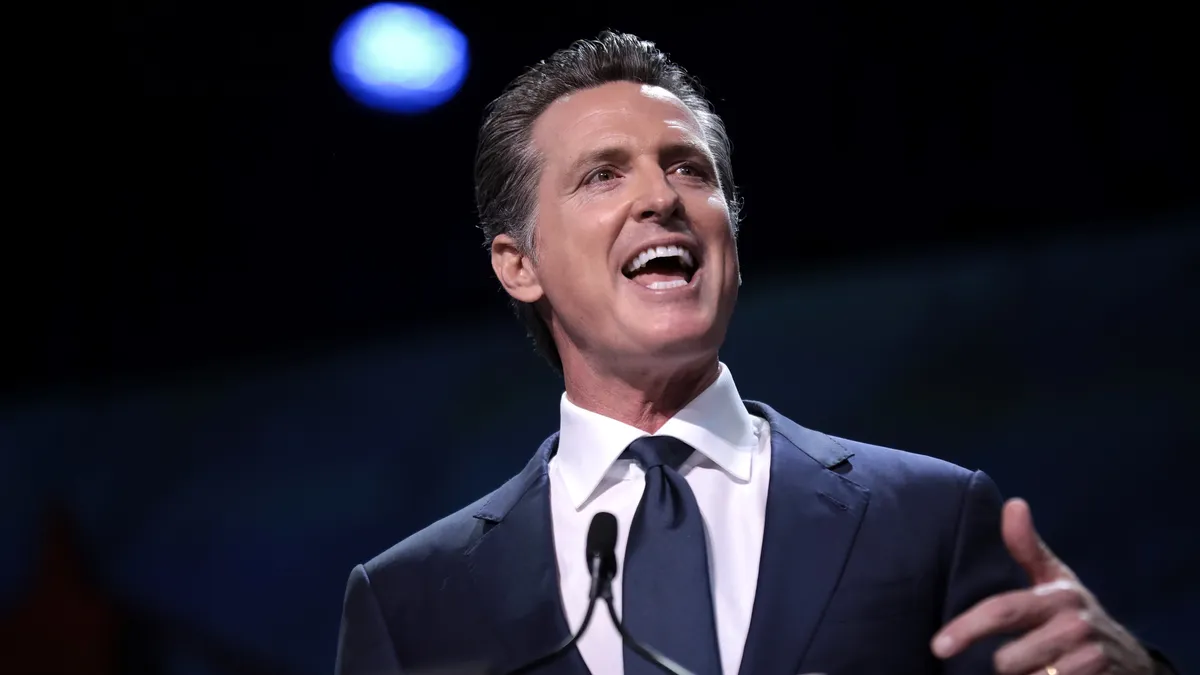Dive Brief:
- The National Restaurant Association and International Franchise Association have formed a coalition to back a referendum initiative on California’s new fast food council law, according to a press release emailed to Restaurant Dive.
- The coalition has just shy of three months to gather more than 600,000 signatures necessary to place the repeal of AB 257 on the ballot in the 2024 general election, according to the state government’s website.
- California’s referendum system allows groups dissatisfied with legislative outcomes to nullify those laws through a statewide election.
Dive Insight:
The coalition, called Protect Neighborhood Restaurants, argued Newsom should have never signed AB 257. The law establishes a council of industry, labor and state representatives to set wages and working conditions at restaurants of chains with more than 100 units nationally. The coalition claims AB 257 would drive up costs, especially given a provision enabling the council to set the minimum wage for the fast food sector at $22 an hour.
“By signing this bill, Governor Newsom has chosen winners and losers and has left me, a restaurant franchisee, holding the bag for whatever this unelected council throws at me,” Jesse Lara, an area manager at an El Pollo Loco franchise co-owned by his father, said in a press release. “This bill will make it harder to live, work, and own a business in the state.”
The referendum effort launched on September 6 when two California residents filed a proposal for it with the state’s attorney general. Supporters of AB 257 decried the proposed ballot measure.
“We won AB 257 by speaking out, standing up and going on strike to show billion-dollar fast-food corporations we need a voice on the job to force them to take responsibility for systemic issues like violence, low pay, wage theft and sexual harassment,” Sandro Flores, a Carl’s Jr. worker in Los Angeles and organizer with Fight for $15 and a union said in a statement emailed to Restaurant Dive. “This ballot measure isn’t going to stop us.”
Mary Kay Henry, international president of the Service Employees International Union (SEIU), said in a statement that the referendum push is an attempt by fast food corporations to “buy their way out of a law intended to lift pay for their workers.”
The SEIU, which has organized fast food workers through its national corporate campaigns, was the key labor force pushing for AB 257.
As California experiments with labor law reform, the referendum process has emerged as a bulwark against regulation for the state’s business interests. The expense of running a statewide campaign in California, which has nearly 27 million eligible voters, may give an advantage to industry groups with considerable spending power.
Prop 22, the 2020 ballot initiative which overturned the state’s law classifying gig workers as employees, proved an expensive election. Backers of the referendum, headed by food delivery and rideshare firms, outspent opponents of the referendum about 11 to 1, spending roughly $188 million dollars to the approximately $16 million spent by unions and their allies. In 2021, however, a California judge overturned Prop 22.














